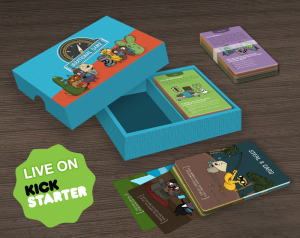Life (and the Pursuit of Happiness)– But for How Long?
Confronting our mortality is not an easy task for most people. However, there are many reasons people should consider just how long they might live.
In the case of retirement planning, life expectancy is important in relation to the benefits like Medicare and Social Security that people earn during their working years. According to the Pew Research Center, use of these government benefits programs is “virtually universal (97%) among those ages 65 and older—the age at which most adults qualify for Social Security and Medicare benefits.”
Differences in life expectancy between the rich and the poor can mean that more affluent Americans receive hundreds of thousands of dollars more in benefits that those who are less well off. In addition to the economic considerations, there is a psychological and perhaps even moral factor that comes into play when thinking about how long we might expect to live in relation to our financial status.
Topic 3 in Fair Game? asked users to think about exactly this question and to estimate how income is related to life expectancy and what that relationship should be in a fair world.
“It will surprise nobody to learn that life expectancy increases with income.”— Michael Specter, 4/16/16, The New Yorker
On the whole, our users estimated that the richest 10% of society would have a life expectancy 12 years longer than the poorest 10%. In reality, the difference is 11 years (12 additional years for men and 10.1 additional years for women).
How many more years of life do they think the wealthy should expect in a fair world? 3 more years (a 75% reduction from their estimate of what is true).
Estimates for the current difference in life expectancy were remarkably similar across all age groups, as were our users’ beliefs about what would be fair. Preferences for a fair difference were also similar. There may be hints of a difference between younger and older adults, with a possible explanation simply being ‘mortality salience’, or how much longer users themselves’ expect to live.
What about gender? Both males and females estimate 12 more years of life for the top 10%. But they differ slightly in what they think a fair amount of additional years would be — 4 vs. 3, respectively.
And political leaning? People who identify as conservative and those who identify as liberal only differed by 1 year in terms of what they believed the life expectancy gain from wealth to be, and 2 years in what they thought it should be in a fair world. Conservatives estimate the gain to be 12 years, while liberals put it at 13 years. In terms of what they think would happen in a fair society, conservatives consider 5 years and liberals consider 3 years to be a fair number of years gained with wealth. Despite these small differences, the presumed improvement (from what is thought to what it should be) ends up being 7 years for conservatives vs. 10 years for liberals.
Together, the data reported here suggest that estimations of the present gap in life expectancy are fairly accurate. And that small differences in life expectancy (3-5 years) are considered fair (or perhaps tolerable) by most people. Has the wealth-based life expectancy gap always been this large? According to a Brookings report, it has actually grown from 4.5 years (for the cohort of seniors born in 1920) to 11 years (for the cohort born in 1940). It is likely that multiple factors, including differential access to quality medical care, and higher rates of smoking and obesity, contribute to the growth of this gap. On top of all of this, wealthier people typically retire later and can delay receiving social security payments, thereby increasing income inequality in the older population.
Unfortunately, public benefits that were originally intended to be progressive seem to be becoming (unintentionally) regressive over time. Perhaps there are some solutions that might help to keep more Americans living long, happy, and healthy lives?
What do you think? Please join us and play along by downloading Fair Game? from iTunes or Google Play.
On Fairness — please join us
What is fair?
According to Merriam-Webster:
: agreeing with what is thought to be right or acceptable
: treating people in a way that does not favor some over others
: not too harsh or critical
Many people can tell you when something is NOT fair (especially children, who test this concept more thoroughly than any scientist could)! Injustice may be an easier phenomenon to spot in the world (especially when we are the victim or perceived victim).
Does society view what is right or acceptable through a single lens, or does an individual’s unique background and experience shape their perception of fairness? In our new app, you can join in by answering questions about aspects of life in the United States. Do you think the world that we live in is fair? What should the world look like? Give your opinions and be a part of this large-scale social expression. You may learn something about yourself and about society. And you’ll help us answer the question, “Is life for everyone in the United States a Fair Game?”
To download for Apple:
https://itunes.apple.com/us/app/fair-game/id1138020713?mt=8
To download for Android/Google:
https://play.google.com/store/apps/details?id=com.advancedhindsight.fairgame
A survey about your apps
Dear friends,
There’s no question that we are becoming more and more dependent on our phones as a society. It’s less clear to me, however, what exactly we are doing on our smartphones, and how much time we are spending on each of these activities. If you would like to participate in a brief study, please answer a few questions about your app usage.
Or copy and paste this link into your browser: https://duke.qualtrics.com/SE/?SID=SV_7Ny8PvEN8J15E8d
Thanks very much,
Dan
Research report on email use
First, I want to thank everyone who participated in this research. Thanks
And now, for the results….
Email has become a mix of blessing and evil in our lives. Blessing because it has become a broad communication channel for everything—for our friends, family, work and businesses. Evil because it constantly interrupts us in our daily lives. Moreover, we end up at the mercy of other people’s timelines. It’s your list on your computer, but the order of that list and when it comes depends on when somebody else decides to send you something.
What if we could put emails on our own timeline? What if we could decide which and what kinds of emails we should receive at times that match our own schedules?
To find out, we asked over 1500 of your fellow readers to determine the ideal email timeline.
Currently, people receive 100% of emails immediately upon arrival with distracting notifications. So we asked people what percentage of their emails they wanted to see that quickly. It turns out only 11% of emails need to be shown immediately upon arrival with a notification to interrupt you.
What about the other 89% of emails? We took it a step further and asked when people needed to see the rest of their emails at various points in time: from increments of hours, the end of the day, week and month. In addition we asked what percentage of emails they would want automatically deleted and automatically archived.
We found that 31% of emails can handle a delay of 1 to 8 hours and importantly, without notifications. People need to see an additional 20% of emails by the end of the day, 11% by the end of the week and 3% by the end of the month. The remaining 24% of emails could simply be trashed or archived.
With these email preferences in mind, imagine there was a magic email genie that would automatically categorize your messages into these various time categories. Which categories would be the most useful for everyone?
When we asked our participants, the top 4 categories people would want were emails to be divided by being send immediately (with notifications), by the end of the day, by the end of the week and — you guessed it — automatically deleted.
Right now the default of every major email service is to send notifications for emails immediately upon arrival. Roughly speaking, people only want to be interrupted for about 10% of their emails immediately upon arrival. This means that email services are hurting peoples’ attention in a counter productive way the remaining 90% of the time. How do we solve this conundrum? How can we get all the emails that people never want to see—out? Our results show that having a classification of different time frames and durations of when people need to deal with emails seem to be a useful idea. Instead of having one inbox that puts us at the mercy of other people’s timelines, maybe we need multiple inboxes that are sensitive to when something needs to be dealt with.
A Volkswagen Scandal
You may have heard about the recent Volkswagen scandal involving a cheat to pass emissions tests in VW diesel vehicles.
I’d like to get your opinions about this event, so I’ve added a questionnaire to my survey app called “(sample) size matters.”
If you would like to participate in the study (as well as other studies that you’ll find in the app), simply download the app on iOS or Android and share your opinions.
Irrationally Yours,
Dan Ariely
Just launched the Irrational Game
The day has finally come!
We’ve just launched the Irrational Game Kickstarter campaign, which means you can now get the game and some other rewards here.
The Irrational Game – We hope it will be a thought provoking, engaging and fun way to incorporate social sciences and human behavior into a challenging and strategic game.
It should also give you a way to reflect on your behavior and what you might want to change
If you consider supporting the project, please do it on the first day. A first day boost will give us great momentum for the entire campaign!
Thank you so much for all of your support. We can’t wait to get you the game.
Irrationally yours,
Dan
Investment Survey
Do you manage at least a portion of your own investments? If so, we have a survey studying investor behavior and could use your help. The survey contains questions about financial decision-making that’s part of a research study at Duke University. Please open the link below in a new window to take the survey. The survey should take you about 30 minutes. We would appreciate your full attention and careful consideration of each question. Participation is voluntary and your answers will remain anonymous. Thanks for participating!
You can access the survey here: https://new.az1.qualtrics.com/SE/?SID=SV_0oJot9TrgO8oqRn
New Survey
I just posted a new study that should take you about 5 minutes to complete. If you would like to take the survey (and I would appreciate it very much), please look to the right sidebar under “Participate” and click on the “Take a quick anonymous survey” link. You can also access it right here.
Thanks in advance for your help.
Irrationally Yours,
Dan
P.S. I switched out that survey and posted a new new one, so even if you already took the other survey, there’s more!
(Sample) Size Matters: New App Release!
a research app for smartphone scientists on the go
Social science has uncovered many fascinating aspects of human behavior, from how we think as individuals to how we act in groups. We know that humans are loss averse, emotional, habit-forming creatures. We mispredict the future and misremember the past. And yet, what social science is missing is a better understanding of how these phenomena (and others) change over time, in different cultures and regions, across gender and age.
By collecting a heaping amount of data (and increasing the size of our samples), we hope to unravel nuances in behavioral variations; we hope to detect the impact of minor differences that simply wouldn’t appear in smaller samples. The pursuit of this app is to collect an abundance of data from an abundance of locations all over the world, shining light on behavioral similarities and differences, from Antarctica to Zimbabwe. To do this, we need your help! Join our team of smartphone scientists and take on small tasks that will be “pushed” to you through the app.
On some occasions, you’ll be asked to give your opinion about various topics; you may be asked to predict the outcome of an experiment or to record your thoughts on anything from wealth distribution to peer influence. On other occasions, you’ll be sent out into the world to collect data; you may be asked to interact with a stranger or observe a scene and record certain details. Prepare to be surprised and delighted by the exciting research you will be a part of.
Participate in a movement that transcends oceans and cultural barriers, gaining access to a wider range of information than ever before. Download the app now, and get started on your first mission!
How it Works
- create an account
- complete your first mission by following the directions in the app
- sit back and wait for the next mission to be pushed to you, and make sure to complete it before time runs out!
- keep track of your missions and your points earned for each task
New survey!
I just posted a new study that should take you about 5 minutes to complete. If you would like to take the survey (and I would appreciate it very much), please look to the right sidebar under “Participate” and click on the “Take a quick anonymous survey” link. Thanks in advance for your help.
Irrationally Yours,
Dan

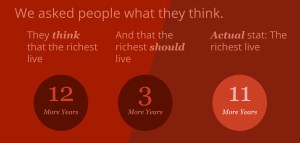
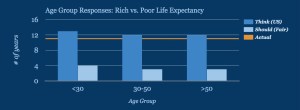
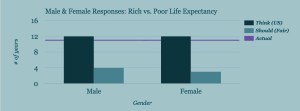
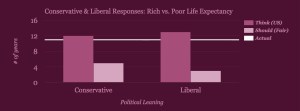

 Tweet
Tweet  Like
Like 

